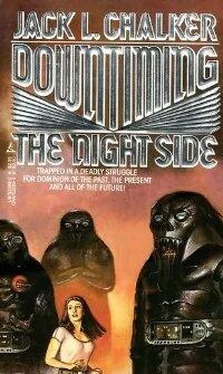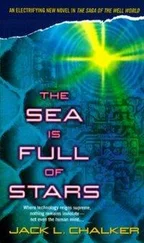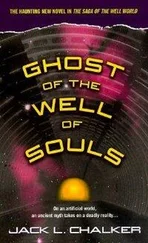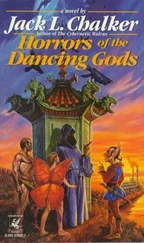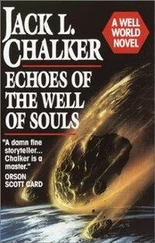Jack Chalker - Downtiming the Night Side
Здесь есть возможность читать онлайн «Jack Chalker - Downtiming the Night Side» весь текст электронной книги совершенно бесплатно (целиком полную версию без сокращений). В некоторых случаях можно слушать аудио, скачать через торрент в формате fb2 и присутствует краткое содержание. Год выпуска: 1985, ISBN: 1985, Издательство: Tor Books, Жанр: Фантастика и фэнтези, на английском языке. Описание произведения, (предисловие) а так же отзывы посетителей доступны на портале библиотеки ЛибКат.
- Название:Downtiming the Night Side
- Автор:
- Издательство:Tor Books
- Жанр:
- Год:1985
- ISBN:0-812-53288-0
- Рейтинг книги:3 / 5. Голосов: 1
-
Избранное:Добавить в избранное
- Отзывы:
-
Ваша оценка:
- 60
- 1
- 2
- 3
- 4
- 5
Downtiming the Night Side: краткое содержание, описание и аннотация
Предлагаем к чтению аннотацию, описание, краткое содержание или предисловие (зависит от того, что написал сам автор книги «Downtiming the Night Side»). Если вы не нашли необходимую информацию о книге — напишите в комментариях, мы постараемся отыскать её.
Downtiming the Night Side — читать онлайн бесплатно полную книгу (весь текст) целиком
Ниже представлен текст книги, разбитый по страницам. Система сохранения места последней прочитанной страницы, позволяет с удобством читать онлайн бесплатно книгу «Downtiming the Night Side», без необходимости каждый раз заново искать на чём Вы остановились. Поставьте закладку, и сможете в любой момент перейти на страницу, на которой закончили чтение.
Интервал:
Закладка:
It seemed an interminable journey. The relative time clock in his helmet clicked off the seconds and the minutes, but no matter how fast it went, it seemed agonizingly slow. Faces, their voices from his past, seemed to form in his mind like ghosts and whisper to him.
“Your father would be so proud of you!” his mother whispered to him. “ One of his sons an officer, for Jesus’ sake! The only one who’ll not kill himself in the mines…” “So there you go again,’’ Barbara chided him, sounding thoroughly disgusted. “ Always volunteering, always sticking your neck out! And for what? Nobody’ll ever know, and your bosses will take all the credit, even if it works. Why are you always everybody’s sucker?”
“All I wanted was some love and some understanding!’’ he heard himself shouting. “ Just somebody to care about me as much as I cared about them!’’
“Nobody gives a damn about you,” Barbara snarled back. “ Nobody in this whole fucking, stinking world ever gives a damn about anybody but themselves in the end! Well, maybe it’s time I started joining the garbage!”
Why me? he wondered. Why did they stick me in this job? But he knew the answer. He was the most expendable dependable they had. Living alone in a tiny apartment, drowning himself in his work, no social life to speak of. As the admiral had pointed out, he hadn’t even talked with his family in almost a year, except to send up some gifts around Christmas and beg off the family gathering. Work, you know… Important work…
Pop another frozen dinner in the microwave and take a couple of drinks while it cooks…
“Who’s cooking now, Moo-sic? Who’s floatin’ in the middle of nowheres with the sun all around? Who’s got to pee and can’t never get to the potty?… ”
They never told him it would be like this…
Expendable, dependable; expendable, dependable…
Suddenly the photosensors flipped off with a dramatic click, and the blinding light was gone, replaced with a ghostly gray. He checked his instruments and they said, as near as he could remember, that he’d arrived. The relative time clock kept going, and the system gauges continued to supply air and some cooling, but all else had stopped. The destination LEDs were flashing now, telling him to get on with it.
For a moment, he couldn’t. It wasn’t that he didn’t want to reach up and throw the proper switches, only that he was suddenly overcome with a massive fear that it hadn’t worked, that he would release it all in a vacuum, that to take off that helmet was to die. He hoped that the two bastards that had brought him here had undergone a similar fear, but he suspected not. Sandoval was too much the fanatic and Austin-Venneman too much the airhead.
He steeled himself, reached up, and punched the release buttons. There was a mild hissing sound, and he felt the suit deflate and seem to cling to him. He reached up and removed the helmet. All was still, and surprisingly chilly, but there was air he could breathe.
He decided that freezing was better than remaining in the suit, and removed it. There was no wind, no air movement of any kind except his own breath. He had been warned about this period, and moved with purpose. He was caught right now in a moment, a single slice of time. His body could breathe the air in that slice, but he had to keep moving, for other air would not rush in to replace it.
He bundled up the suit and looked around. What he had taken for a gray nothingness seemed instead to be a dense, sooty fog. He was near water, that was for sure, and walked down a rocky path to where it seemed to be.
There was no sound at all that he didn’t make, no movement, nothing. The water looked choppy, what he could see of it, but the scene was frozen. Only he could make waves in such a still life.
He made his way along the bank to a massive stone outcrop and realized, with some surprise, that what he was seeing was the main support of a bridge. He looked under it, and saw that there was no real foothold there under the arch itself. Quickly he removed the rope and small hammer from the suit, then attached the rope to the suit itself, which had a small hook for that purpose. Slowly he eased the suit into the water and then pushed it a bit under the bridge. It continued under his momentum until the rope became taut, and he took the end, which had a small piton attached, and hammered the thing into the rock just below the water line. He knew the suit would not sink until time caught up, but it made him nervous to look at it all the same. The pouch it had, like its power pack, was watertight, which was important. He would have need to return to this spot when things returned to “normal,” if there now was any such thing.
Satisfied he had done what he could do, he got up and walked back up the bank to the top of the river wall. The fog was so thick it cut visibly to the bone, but it certainly was not night. Early morning, he guessed. Early morning on Saturday, September 11, 1875…
He had wondered why he couldn’t just travel back to a point in time just before the two would have appeared, still fresh and vulnerable in their silver suits, but it had to do with the limitation of the equipment. If they had had a second time chamber, it might have been possible—but to the same period, with people already downtime, the computers simply could not handle it all. He had to live within their relative time frame, and that was that.
He had to keep moving, both for warmth and because any time he stood still he grew quickly short of breath. The streets were gaslit, but shed little light on the gloom, which was not only wet but also incredibly dirty.
He came suddenly upon a frozen tableau—two men: one dressed in the uniform of a Victorian policeman, complete with rounded hat and billy club; the other, a middle-aged man in shabby-looking tweeds: both of them frozen stiff in some sort of argument. Just behind the fellow in tweed, a nasty-looking bulldog was frozen, its left hind leg raised.
He resisted the temptation to play games with the two, to pick their pockets or push the policeman’s hat down over his eyes. He’d been told that no matter what he did, the next time frame and all subsequent ones would not be changed, so whatever he did would be unnoticed and undone. That was something of a relief now, since he knew that if he could barely resist it, the two he was after certainly could not. Time was not easily trifled with, although it could be done. Certainly, two people were here, someplace, dreaming of doing just that. How nice it would be if he could find them while still in this phase. That, however, was impossible. The variations in the motions of the bodies of the universe were such that it was miraculous that the project could even get him to London; landing someone in the same spot a day later was simply impossible.
Still, he walked quickly, partly to keep warm and partly to get to know a little of this area. Normal time agents— how quickly this had become “normal” in his mind! —received weeks of briefing on the time and place they would visit, often months. He had been sent in cold, the only justification being that anyone else sent would have to go cold, too. The small amount of time he’d had had been spent in learning the operation of the suit and the specifics of this time-travel medium.
That brought him back towards the river in something of a panic, and he spent some time walking along it, trying to find that certain area of the bridge again. How long had he been walking? How far had he gone? Was this the Thames, or some other body of water? How many bridges crossed the Thames, anyway? And did they all have cobblestone sea walls and stone arches?
Читать дальшеИнтервал:
Закладка:
Похожие книги на «Downtiming the Night Side»
Представляем Вашему вниманию похожие книги на «Downtiming the Night Side» списком для выбора. Мы отобрали схожую по названию и смыслу литературу в надежде предоставить читателям больше вариантов отыскать новые, интересные, ещё непрочитанные произведения.
Обсуждение, отзывы о книге «Downtiming the Night Side» и просто собственные мнения читателей. Оставьте ваши комментарии, напишите, что Вы думаете о произведении, его смысле или главных героях. Укажите что конкретно понравилось, а что нет, и почему Вы так считаете.
